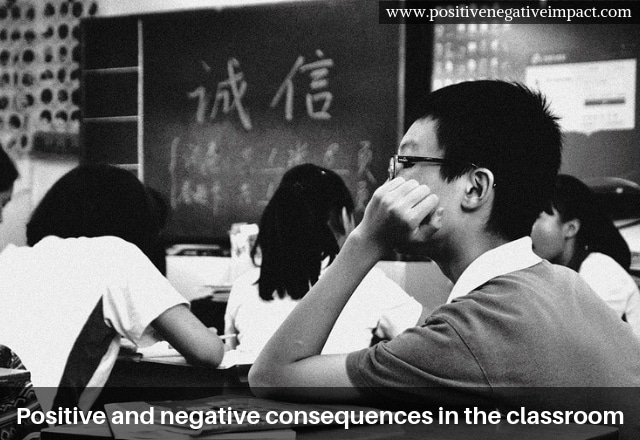Most teachers well understand the ways and means of exerting control and that’s something that a few parents may want to pay heed to. Parents are often at a loss when it comes to preventing their little tot acting out – more often than not, he is just doing that to get your attention. But if you are still worried about how you are not able to discipline your child or at least get them to modify your behavior, then you may want to try out some of the following tips, as it should help transform your recalcitrant kid into an obedient one. These tips are utilized by teachers to exert control and discipline over their students, in classrooms across the world. That’s why you should check out the same.

Positive Effects of Consequences in the Classroom
When it comes to behavior modification, everyone naturally assumes that the same concerns consequences and negative consequences at that. On the contrary, positive consequences have been used by many teachers, across various classrooms to motivate and push their young charges to do better. Check out some of the positive consequences listed below
- Paying attention: Often singling out a single child for the work well done should act as an impetus to her performance in the classroom. You have singled her out for high praise and no doubt your kindness in singling her out would be appreciated by her as well. This should also act as a morale booster for the student and push her to try even harder the next time around and in the process, get her to act in a disciplined manner sans any ruckus.
- Praise: Often praising the student for the work that they had done is enough to put a smile on the face of any student. At the least, you should be able to get them to behave better, and to do things quietly. Incidentally, these tips hold true for all classes and not just the kindergarten.
- Tangible rewards: You can in turn reward them for their good behavior; if your wards are young, then extra play time or if they are seniors who are about to complete schooling, then they may be offered something equally tangible, like a chance to try out for a school sponsored competition.
Negative Effects of Consequences in the Classroom
The fact is that often just punishing the child is not going to be enough for chances are that he or she would repeat the same action and in the immediate future. The only way to discipline a child, however young or old they may be is to make them understand the consequences of their negative behavior and that there would be consequences as a result. Then give them a choice as to which consequence they prefer while making sure that they understand the core reasoning. Once you do so, you can then be sure that the child in question will not be acting out again, anytime soon. Negative consequences are quite effective when it comes to re-modifying behavior.
- Logical consequences: If the student acts out in a certain way, despite knowing that he could get punished, then it is only natural for the logical consequences of his action to follow. For example, if he had hit someone else, then a stint in the detention room would be called for immediately or if he missed his classes and does not have a good reason for the same, the same applies. The point being that the student must understand that he will face the consequences of his action, no matter what.
- Tantrum: Some of the kids are bound to throw a tantrum when young; when that happens, you need to do the best thing possible and ignore it. If you pay attention to the kid, then the tantrum in question would prolong and disturb everyone in your KG section.
- Responsibility: The students need to understand that all their actions have consequences and if you need to make an example of one or another, then you may want to give the more responsibility to handle, to help with the school plays and other activities. This should make them easier to handle in the class as well as get the message that frequent misbehavior will get them more responsibilities.
These are some of the positive and negative consequences in the classroom.
- Tulip Mania – The Story of One of History’s Worst Financial Bubbles - May 15, 2022
- The True Story of Rapunzel - February 22, 2022
- The Blue Fugates: A Kentucky Family Born with Blue Skin - August 17, 2021
